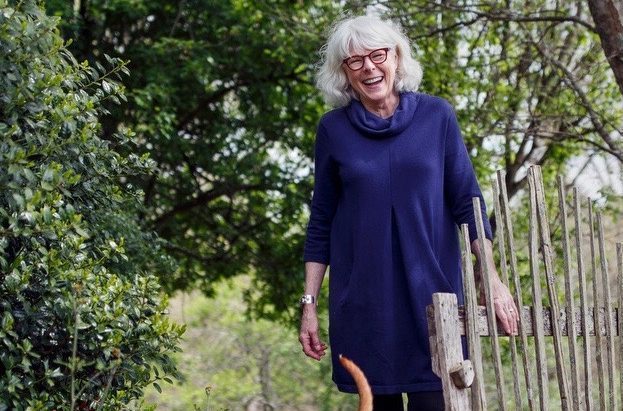When I started following Jesus in college, I dove in with spiritual fervor. To me, the decision to follow Jesus meant a whole lot of purging of “worldly things,” from TV shows and R-rated movies to popular music and certain bathing suit styles. I wanted to follow Paul’s admonition to his Phillipian brothers and sisters to dwell only on what was pure and lovely, and nothing else.
I wasn’t the sort of Christian who burned their secular CDs, but I did shelve them away for a while, opting only for Christian artists and radio stations. Because I so effectively pulled myself out of the world during that season, I miss most of the pop culture references from the first half of the 2000s. The Christian catchphrase “in the world, but not of it,” supported by Romans 12:2 and John 17:14-15, and my own zealous love for and desire to please God turned me into having profanity radar, walking around attune to all that God might despise. “Get behind me, Satan!” I’d shout in the presence of anything that might trigger the radar.
My turn toward Christ took me from “in the world and of it” to “completely out of touch with this world.” In my fervor for Jesus, I had forgotten that God made the world, the whole world, and so loved the whole world that he gave his Son to it so that it might live. The more I sought to diagnose all things as secular and unholy, the smaller the world God so loved became. Rejecting certain music or certain TV shows or certain exercise routines hadn’t drawn me any closer to God; it had only made me into a critical, judgmental, self-righteous snob.
If “purifying” my life of all that was secular didn’t draw me closer to God, what could?
An Altar in the World: A Geography of Faith by Barbara Brown Taylor
Where much of my early efforts to seek purity only resulted in a lot of legalistic door slamming, An Altar in the World encourages a kind of faith that just keeps opening those doors and welcoming the Light into places that were otherwise considered mundane, or even profane, before. Barbara Brown Taylor is an expert in revealing the largeness of everything, how everything is filled to the brim and spilling over with God’s presence and loving touch. We’re often just too busy diagnosing the troubles in our world to see what’s right in front of our judgey noses.
An Altar in the World is a book in the spiritual disciplines family. It would sit well next to Richard Foster’s Celebration of Discipline and Adele Ahlberg Calhoun’s Spiritual Disciplines Handbook: Practices That Transform Us as a book that can help enlarge our awareness of the presence of God that is ever present.
Where my own early journey of faith practiced exclusion, An Altar in the World awakened in me the expansiveness of God’s love. It reminded me over and over again of the mystery and reality of what Paul prayed might be true for the followers of Jesus, “that you, being rooted and established in love, may have power, together with all the Lord’s holy people, to grasp how wide and long and high and deep is the love of Christ, and to know this love that surpasses knowledge—that you may be filled to the measure of all the fullness of God” (Ephesians 3:17-19 NIV).
God’s love is so wide and long and high and deep that it can be found in every part of our waking and sleeping lives, says Taylor. “The treasure we seek requires no lengthy expedition, no expensive equipment, no superior aptitude or special company. All we lack is the willingness to imagine that we already have everything we need,” she writes.
What Is Saving Your Life Right Now?
The story of Jesus’ death and resurrection is one of rescue—salvation is being saved from a life of destruction and being restored into a new life of abundance and joy. Some years ago, Taylor was asked to preach on a Sunday morning, and when she asked what subject the priest wanted her to speak about, he told her, “Come tell us what is saving your life now.”
Dividing the secular-labeled things of this world from the Christian-labeled things of this world did not save my life. It made me stingy with grace. Instead of this relentless separating of the sheep from the goats and the wheat from the weeds (all of which Jesus said he’d take care of later, anyway), I like what Taylor says is saving her life now:
“What is saving my life now is the conviction that there is no spiritual treasure to be found apart from the bodily experiences of human life on earth. My life depends on engaging the most ordinary physical activities with the most exquisite attention I can give them. My life depends on ignoring all touted distinctions between the secular and the sacred, the physical and the spiritual, the body and the soul. What is saving my life now is becoming more fully human, trusting that there is no way to God apart from real life in the real world.”
We live in the real world, the world that God lovingly created. “For in him all things were created: things in heaven and on earth, visible and invisible, whether thrones or powers or rulers or authorities; all things have been created through him and for him” (Colossians 1:16 NIV). All things are God’s.
“Wherever you are, you live in the world, which is just waiting for you to notice the holiness in it,” writes Taylor. “So welcome to your own priesthood, practiced at the altar of your own life. The good news is that you have everything you need to begin.”
An Altar in the World guides us into experiencing the holy moments that are embedded in our everyday lives. From “The Practice of Waking Up to God” (the spiritual discipline of vision) to “The Practice of Feeling Pain” (the spiritual discipline of breakthrough) to “The Practice of Carrying Water” (the spiritual discipline of physical labor), Taylor eloquently opens door after door of what we’ve called mundane or inconvenient to reveal Christ incarnate in everything.
It turns out that the list of things that are pure has very little to do with the things themselves. “To the pure, all things are pure, but to those who are corrupted and do not believe, nothing is pure,” Paul wrote to Titus. He was concerned about those who placed unnecessary rules and regulations on believers, echoing many of the same teachings of Jesus concerning the Pharisees and teachers of the law, and sounding an awful lot like my same gripes with all things “secular.”
In the purifying light of Christ, all things are pure. How do you become pure, dear one?
“For this people’s heart has become calloused;” Jesus said, quoting Isaiah 6:9,10. “They hardly hear with their ears, and they have closed their eyes. Otherwise they might see with their eyes, hear with their ears, understand with their hearts and turn, and I would heal them.’” (Matthew 13:15 NIV).
God’s loving presence is all around you. Open your eyes. Taste and see. Turn and be healed.





 Copyright
2024
Root and Vine
Copyright
2024
Root and Vine